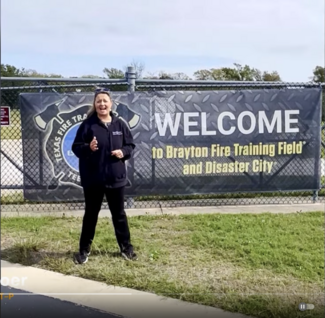Eliminating Stress
Plenty of people say they work well under stress. Some even seem to prefer it. And for EMS providers, it’s a job requirement. But none of that means stress is actually good for us.
There are four types of stress, outlined by the National Volunteer Fire Council (NVFC) during a June 19 webinar titled “Putting Out the Fire: Stress Resilience Strategies”—survival stress, internally generated stress, environmental and job stress, and fatigue and overwork.
Survival stress involves life-threatening situations, be it your life or someone else’s. It’s something EMS providers are familiar with and where the natural reaction is fight or flight, for EMS providers fight is often the only option.
Internally generated stress occurs when we worry about things we can’t control, like a patient dying after you’ve done everything in your power to save her. Knowing that sometimes people just die doesn’t remove the anxiety or stress from thinking maybe there was something more you could have done.
Environmental and job stress can include the stress you feel over implementing new protocols or procedures, more work with fewer resources or the balancing act of your EMS and home lives.
And fatigue and overwork come about because you’ve been too stressed, for too long, from seemingly every corner of your life.
We can respond to stress in different ways—physically, behaviorally and emotionally. The short-term effects of stress are hormone secretion, the fight-or-flight response, increased heart rate, sweating, acute hearing and vision, halted digestion, and the release of endorphins. Short-term, stress can feel exhilarating.
But long-term stress results in high blood pressure; weakened immunity; anxiety, depression and insomnia; headaches or migraines; stomach aches; and even allergies or asthma.
In order to manage stress, you need to first identify what causes stress in you. Do a self-assessment and write down things that cause you stress while you’re under stress or soon after when it’s still fresh. This “stress journal” can be a stress reliever itself by allowing you to get out your feelings instead of bottling them up.
You can manage stress in the short-term with things like progressive muscle relaxation—progressively tensing and relaxing muscles to relieve tension—deep abdominal breathing, yoga, massage, medication and simply getting more organized.
To manage stress in the long-term, schedule your priorities so you use your time more effectively, slow down at work or in the field, and find ways to change your attitude, whether it’s by avoiding situations that stress you out or accepting stressful situations for what they are not letting them change the way you do things. And, it should go without saying, eating a balanced diet and regular exercise do wonders for decreasing stress.
















